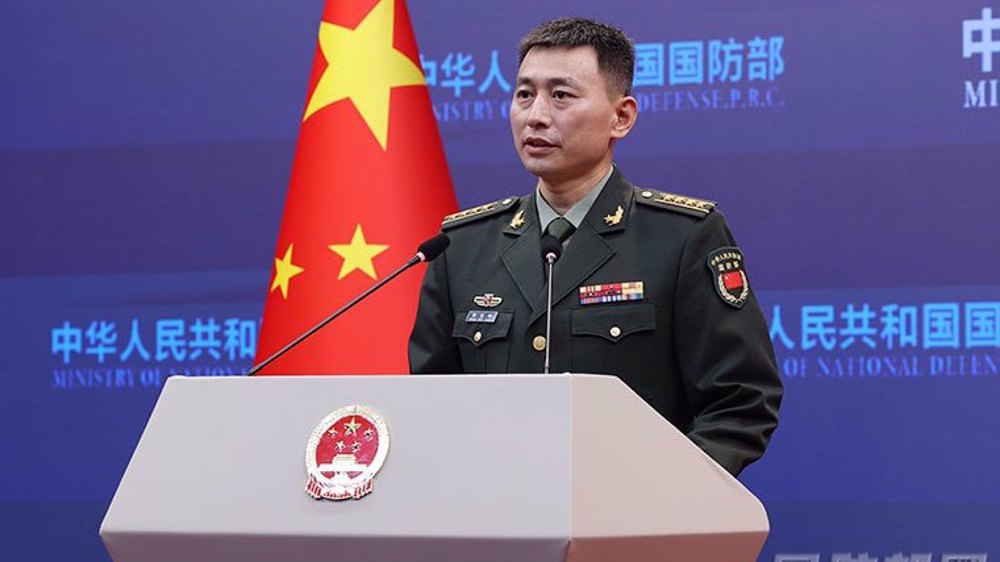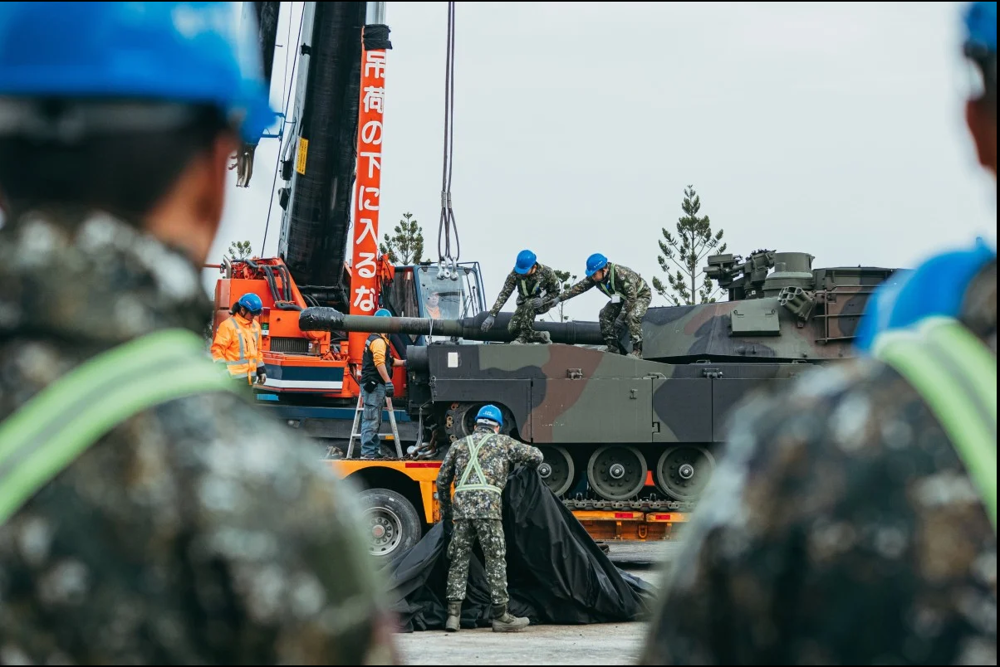China confirms test of new long-range missile
China has quietly confirmed a report that it carried out another test of a new long-range ballistic missile.
The Washington Free Beacon said on Tuesday that China on April 12 had successfully tested a new long-range intercontinental ballistic missile called the Dongfeng-41 (East Wind, DF-41).
The privately-owned online newspaper did not say where the test took place but noted the missile launch came ahead of a visit by US Defense Secretary Ashton Carter to the aircraft carrier USS Stennis in the South China Sea.
In a statement on its website on Wednesday, the Chinese Defense Ministry said that routine research tests on Chinese territory were normal.
“These tests are not aimed at any set country or target,” the statement said.
The ministry further dismissed as “speculation” the reports that the missile test was conducted in the vicinity of the South China Sea.
“Media reports about the test location are pure speculation,” it said, without elaborating.
The ministry confirmed in December that China was testing the missile. The Washington Free Beacon said US intelligence agencies had recently monitored a DF-41 missile test on a rail launch platform by Beijing.
The new missile tests are believed to be part of a military modernization program by Chinese President Xi Jinping, which includes developing stealth fighters and building aircraft carriers. Beijing says it has no hostile intent and that the military overhaul plan is needed to protect its legitimate security requirements.
China claims sovereignty over nearly all of the South China Sea, which is also claimed in part by Taiwan, Brunei, Vietnam, Malaysia and the Philippines. The contested waters are believed to be rich in oil and gas.
The dispute has at times drawn in extra-territorial countries, particularly the United States that has more often sided with China’s rivals.
Xi named ‘commander in chief’
Xi has been named commander-in-chief of the country’s Joint Operations Command Center, giving the Chinese leader a more direct role as commander of the country's armed forces.
Xi's new title was revealed in news reports that featured prominently on national news broadcasts Wednesday and Thursday in which he appeared publicly for the first time in camouflage battle dress wearing the joint center's insignia.
During his Wednesday visit to the command center, Xi called on the center's staff to “closely follow the trends of global military revolution and strive to build a joint battle command system that meets the need of fighting and winning an informationized war,” the official Xinhua News Agency said.
He asked officers to “change their ideas, innovate and tackle difficulties, in a bid to build a joint battle command system that was absolutely loyal, resourceful in fighting, efficient in commanding and courageous and capable of winning wars.”
Xi already serves as the chairman of the Central Military Commission that oversees the world's largest standing armed force with 2.3 million members.
PM Abe's shrine offering
On Thursday, Japanese Prime Minister Shinzo Abe sent a ritual offering to a Tokyo shrine for the country’s war dead, prompting Beijing to urge it to “deeply reflect on its invasion history.”
Chinese Foreign Ministry spokeswoman Hua Chunying said that the Yasukuni shrine consecrates war criminals.
“We urge Japan to honestly and deeply reflect on its invasion history, demarcate a complete boundary on militarism, and take practical actions to win back the trust of its Asian neighbors and the international community,” she said.
Relations between China and Japan have long been troubled by a territorial dispute as well as by what China regards as Japan’s failure to properly compensate its World War II-era atrocities.
Abe’s spring festival offering of a “masakaki” ceremonial tree at the shrine, which some see as a symbol of Japanese militarism in World War II, comes as Foreign Minister Fumio Kishida is expected to visit Beijing on April 30.
Kishida is likely to meet Chinese counterpart Wang Yi in a bid to ease friction over issues such as sovereignty disputes over the South China Sea, according to Japanese media.
VIDEO | Yemeni forces repel US-British attack, down F-18 Jet
Iran’s capabilities vast; enemy’s ‘maximum pressure’ policies all failed miserably: Senior official
Iran’s economy grew 2.7% y/y in Sep quarter: CBI
VIDEO | Freelancers in Gaza strive to stay online amid genocide
Mikati demands Israel's withdrawal from south Lebanon
Yemeni army strikes Israeli military sites with drones
‘Clock ticking’: UNRWA slams unjustifiable killing of children in Gaza
BP to be sued in Britain for supplying oil to Israel










 This makes it easy to access the Press TV website
This makes it easy to access the Press TV website